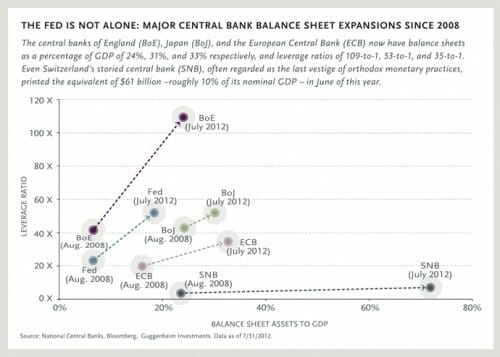The Insanity of Current Equity Valuations -- The WeWork Unicorn (I Bet You Thought I Was Going to Say Tesla)
WeWork is a provider of work spaces for individuals and startup companies. Unless I am missing something (and WeWork devotees are welcome to chime in) it is essentially a hipper rebranding of traditional small business office space and services companies like Regus (now IWG).
Currently, Regus / IWG has about $3 billion in annual revenue on which it makes something like a positive 5% net income margin and trades at a valuation of about 1x annual revenues. WeWork is a private company, though is rumored to be IPOing soon. It had $1.8 billion of revenue last year but lost $1.9 billion, meaning that it was basically selling $10 bills for $5 each with an negative net income margin of 105%. Its last funding round was done at a $45 billion valuation, or 81 times 2018 revenue. This valuation will likely go up in an IPO.
No real point here, except to say that I have not seen valuations this insane since the late 1990's. What makes the examples of WeWork and Tesla perhaps even more incredible than examples in the 1990's is that the market is putting growth software valuations on bricks and mortar companies. Oracle or Microsoft might have been expected to scale up easily and relatively cheaply, but scaling a real estate company takes a ton of money. Not sure where the growth economy of scale is in office space. And don't even get me started with the extrapolated growth projections here. When the tech bubble bursts, WeWork is going to have a ton of grief on its hands, and unlike software companies it is not going to be able to slash SG&A by cutting payrolls. It is going to be stuck in a lot of long term leases and mortgages that it can't break (just ask Tesla about that when they tried to cut SG&A by closing their stores).
PS- As with Tesla and any number of other examples, many devotees of certain products hear criticism of the company's valuation as criticism of the company's product. The two do not have to be related. Grossly overvalued companies can still have products you might want to buy. In fact, if WeWork is selling you a $10 product for $5, I would not be at all surprised if you are satisfied.
PPS- This is not to say you can't make money in a bubble. Careful, observant, and risk tolerant individuals can make money riding stocks up that they know are due for a crash some day. Readers know that I believe Tesla is headed for a reckoning, but I am making money this week on short term calls I bought last week because I knew that Musk is going to pump the stock like hell last week and this week and pull forward every bit of volume he can into Q1 in a bid to save a dying growth story. I bet the stock would ride up on early reports of this but fall off once financials are out and further when Q2 shows that the order books have been drained. But this is risky, risky, risky. It is a tiny piece of my investment portfolio and this sort of investing is but a hobby for me, a bar bet to determine if I have really come to understand how Elon Musk ticks. Also, I am just a layman and not a professional so don't listen to me.
